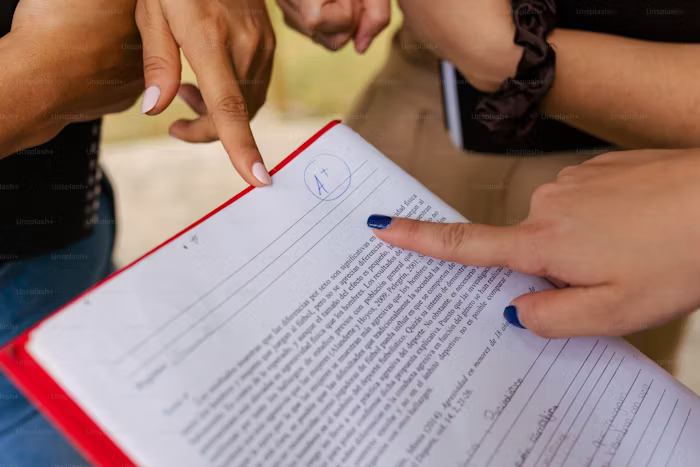In high school, I was a 4.0 student. Classes came easy to me, and I regularly got A+s on assignments without strenuous effort. I went to a small midwestern county school that definitely did not push me as rigorously as I would have liked, and I never felt very challenged academically. It was kind of nice, though. I could coast, getting the grades I wanted without having to put in that much effort. That isn’t to say that I didn’t try, just that my efforts were always rewarded with positive feedback and good grades.
College has been a different matter. Throughout my time at Asbury, I have been in some classes that have challenged me to think deeply and pushed me past what I thought I was capable of. I’ve managed to maintain good grades, but one thing that I’ve had to learn is that sometimes, “good enough” is, in fact, good enough. C’s do in fact get degrees, as the saying goes. A few more hours of sleep or even just a chance to rest and hang out with friends can be far more beneficial in the long run than slaving over a paper for hours on end to get a better grade. I’ve come to realize that getting a B on a paper or a project is not, in fact, the end of the world.
That may seem silly and obvious to some, but to those who, like me, have always been good at school and feel the need to excel, it can be really hard to internalize. As a former “gifted kid,” being good at school was in many ways a part of my personality — and sometimes still is. It wasn’t an easy lesson to learn and is something I’m still working on.
Freshman year of college, I was thrilled by the intellectually stimulating courses I was taking as well as the ample free time I had to hang out with my friends and watch movies. My classes were interesting, and most of my peers actually seemed like they wanted to be there, a far cry from my high school experience.
My sophomore year, I decided to push myself. I had done well the year before and had plenty of free time, so why not? I took more classes and added more extracurriculars and, shockingly enough, I was exhausted. I didn’t have as much time to recover and recharge, so I felt like I was constantly running from one thing to the next without ever getting a break. I got my first B on an assignment and ended with a B in the class.
I was upset and frustrated, but I knew I hadn’t put as much into the class as some people. It was mainly project-based, and I had gotten into a bad habit of procrastinating big assignments and doing the whole thing a day or two before it was due. I had never bothered to do anything different, because up until that point, it had always worked out for me. Sound familiar to anyone? It likely does, as the American Psychological Association notes in their article “Procrastination or ‘intentional delay’?” that “80 percent to 95 percent of college students procrastinate, particularly when it comes to doing their coursework.”
There are many different reasons for procrastination, but for me, it was mainly perfectionism. Sometimes the desire to do something well, or attempt perfection, can be debilitating. Instead of starting the impossible tasks I created for myself, I would continue to avoid them until the last minute.
I’m not saying you should stop procrastinating. Procrastination works for some people, and I can’t say that I never do it anymore. I’m writing this piece the day it’s due. However, I do think that a fear of failure or getting a bad grade is a bad reason to procrastinate. Getting started can be the most difficult part sometimes, and if you get started early enough, you can give yourself permission to have a bad first draft just to get ideas on the page. Then you still have time to revise and hone your paper or project without scrambling before it’s due.
Now that sounds great in theory, but it’s harder in practice. Even this semester as a senior, I’ve done my time revising a paper at 2 a.m. the night before it’s due. The thing is, I’ve let go of the need for it to be perfect. I still want to do well in my classes and get good grades on the papers I’m spending time and energy on, but it doesn’t have to be a 98% to make me proud of my effort.
The important thing in my mind now is that I learn. Instead of focusing on getting a good grade, I try to focus on learning and understanding the material. The goal of grades is to be a reflection of how much you know, but that isn’t always the case. As long as I can say that I did my best to learn or that the grade reflects the effort I put in, I’m happy, but it took me a while to get here. And it can still be frustrating when I feel like I deserve a better grade than I get. But I’ve gotten lower grades and I made it through. My professors didn’t see me any differently, and nothing catastrophic came of my failure (except, perhaps, a bruised ego).
So to those academic validation junkies out there, you’re doing great. I’m proud of you. And know, a B is not the end of the world.



